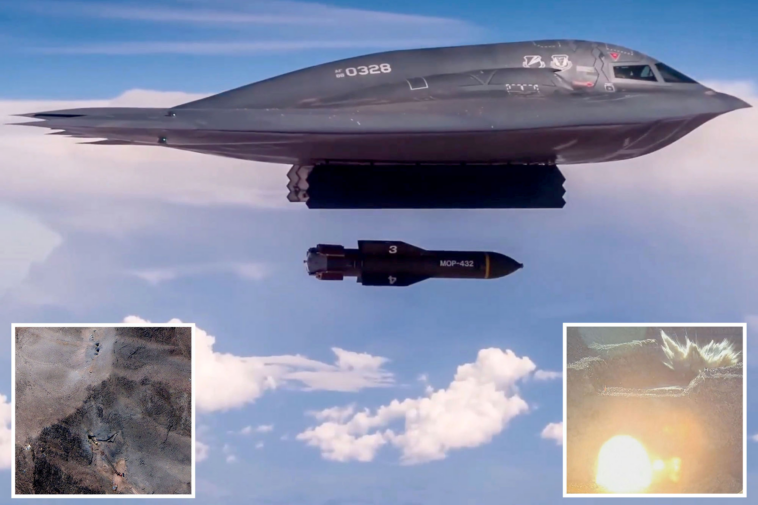The US is preparing to authorize giving Israel B-2 stealth bombers and 30,000-pound, 20-foot-long “bunker buster” bombs if Iran resumes its nuclear weapons program, under a new bill proposed by a bipartisan pair of lawmakers.
The Bunker Buster Act would allow President Trump to “take actions to ensure Israel is prepared for all contingencies if Iran seeks to develop a nuclear weapon,” according to Reps. Josh Gottheimer, (D-NJ), and Mike Lawler, (R-NY), who proposed the legislation.
“Iran, the leading state sponsor of terror, and one of America’s top enemies, can never have a nuclear weapon. That’s why I strongly supported our military actions earlier this month,” Gottheimer said in a statement.
“Iran has killed scores of Americans, including our service members, and repeatedly attacked our key democratic ally, Israel. Israel must be able to defend herself against Iran, and ensure that Iran cannot rebuild its nuclear capabilities,” he added.
“This bill gives the President the authority to equip Israel with the tools and training they need to deter Tehran and make the world a safer place,” Lawler said.
B-2 bomber pilots were deployed last month in a historic attack on Iran’s nuclear facilities, launching 14 GBU 57 Massive Ordnance Penetrators, better known as bunker-buster bombs, onto three separate sites in the country.
The US “totally obliterated” the Iranian regime’s nuclear program, President Trump claimed, after the bombs penetrated up to 200 feet below the surface into the underground facilities.
Israel also took part in the strikes on Iranian nuclear and military facilities.
The US had 19 B-2s in operation as of last year, and has not allowed any of its allies to use the stealth bombers. It’s the only plane capable of delivering the massive payload.
Centrifuges at Iran’s underground nuclear site at Fordow are “no longer operational” following last month’s US strikes, the International Atomic Energy Agency’s (IAEA) Chair Rafael Grossi told Radio France Internationale this week.
However, there are rumors Iran may have moved its stock of enriched uranium away from the targeted sites ahead of the bombing, which administration officials have vehemently denied.
Iran may begin enriching uranium again within a “matter of months,” Grossi told CBS last week.
“The capacities they have are there. They can have, you know, in a matter of months, I would say, a few cascades of centrifuges spinning and producing enriched uranium, or less than that. But as I said, frankly speaking, one cannot claim that everything has disappeared and there is nothing there,” Grossi said.
“It is clear that there has been severe damage, but it’s not total damage. Iran has the capacities there; industrial and technological capacities. So if they so wish, they will be able to start doing this again,” he added.



